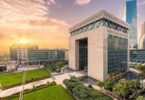LAHORE (INP): All Pakistan Business Forum has expressed its serious concern over the soaring inflation, which has reached the highest level during last seven years amidst tight monetary policy of the state bank, advising the government to address structural weaknesses to put the economy on a path of sustainable growth so that the inflation could be also controlled.
APBF President Syed Maaz Mahmood, referring to the recent central bank data, highlighted that the average headline CPI inflation has reached 11.5 percent in Q1 of FY20, extending the steep upward trend which is persistent since the beginning of FY19. “Not only this level was double the inflation observed in the same quarter last year, it was also the highest level of quarterly inflation since Q4 of FY12.”
This outcome was attributed to the lagged pass-through of the exchange rate depreciation towards the end of FY19; rationalization of energy tariffs; and revenue-led fiscal measures taken in the budget 2019-20, which included the imposition of federal excise duty on a number of consumer items, and the ending of the zero-rating regime for export-oriented sectors and of the reduced GST regime on sugar, he added.
According to the report of state bank, Pakistan’s economic growth is unlikely to meet the target of 4 percent this fiscal, due to soft trends in agriculture and manufacturing production, the central bank said, advising the government to address structural vulnerabilities to put the economy on a sustainable growth trajectory.
Performance of commodity producing sectors would remain subdued. In view of these developments, achieving the real GDP growth target of 4 percent appears unlikely, he said.
He said that the most serious challenge to the economy has now become rising inflation, as the consumer prices influenced by faster rupee depreciation and rise in energy prices have increased to their highest level in seven years.
APBF president Syed Maaz Mahmood lamented that constant increase in oil, gas and power rates had hit the Inflation, also threatening to rupee stability.
Moreover, the government approaching of the International Monetary Fund for financial assistance is also the major reason of price-hike. He said the people would not benefit from the IMF loan as the lavish spending has been continuing in this government too.
He said that the electricity users are facing further hike in power prices as the government is planning to increase electricity rates in coming months in order to meet revenue requirements of power distribution companies.
According to the report, the current account deficit in Q1 of FY20 fell to less than half of last year’s level, primarily on the back of significant import compression while exports growth remained low due to low unit prices. On the external front, the balance of payments continued to improve during Q1 of FY20.
The central bank’s report spells out in sharp detail the challenges being faced by the economy including mismatch related to exports quantum and earnings, delays in implementation of tax measures and weak management in food prices.
Most of the improvement in the current account has come from a reduction in the country’s import bill; exports have yet to contribute significantly, as healthy quantum gains are not supported by price trends.
Furthermore, while the drawdown in foreign exchange reserves has been reversed, the overall reserves position remains below the comfort level (in terms of import coverage).






